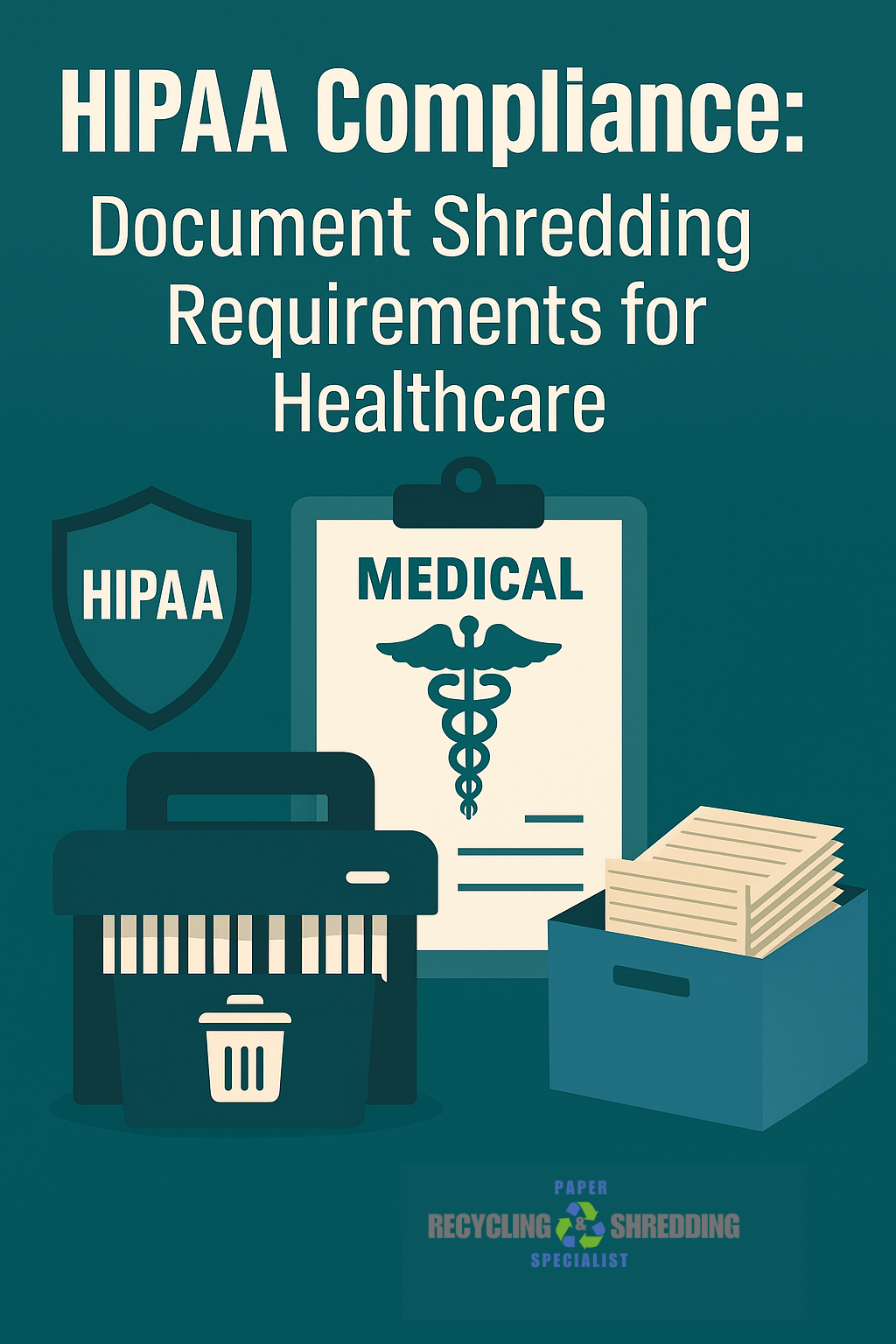HIPAA Compliance: Document Shredding Requirements for Healthcare
When it comes to protecting patient data, the stakes couldn’t be higher. Whether you run a small private practice or manage a large hospital network, your healthcare organization is legally responsible for safeguarding Protected Health Information (PHI). One often-overlooked part of that responsibility? How you dispose of sensitive documents.
If you’re still tossing files in the recycling bin or relying on an office shredder, it’s time to rethink your approach. HIPAA compliance doesn’t stop at storage—it includes secure document destruction.
What Does HIPAA Say About Document Disposal?
The Health Insurance Portability and Accountability Act (HIPAA) requires covered entities and their business associates to implement safeguards that protect PHI in all forms—including paper. That means:
No tossing records in unlocked trash cans
No leaving charts out in plain sight
No storing old files in forgotten closets
HIPAA’s Privacy Rule and Security Rule emphasize proper disposal of PHI, which includes shredding, burning, pulping, or pulverizing documents so they cannot be reconstructed or read.
If your practice fails to destroy records properly, you could face fines ranging from $100 to $50,000 per violation, even if the breach was unintentional.
Why a Certified Shredding Partner Matters
Not all shredding services are created equal. To meet HIPAA’s standards, you’ll want to work with a provider who:
Offers locked containers for day-to-day use
Performs on-site or securely tracked off-site destruction
Provides Certificates of Destruction for audit trails
Is NAID AAA Certified—the gold standard in secure shredding
These features help you establish a strong chain of custody, ensuring your documents are protected at every step.
On-Site vs. Off-Site Shredding for Healthcare
Both options can be HIPAA-compliant—what matters is the process and documentation.
Ideal for smaller practices or facilities that want to witness destruction
Provides instant peace of mind
Often includes real-time destruction logs
Great for large hospitals or multi-location networks
Efficient for handling bulk destruction
Requires secure transport and verified destruction at a monitored facility
Avoid These Common HIPAA Mistakes
Even the best intentions can lead to compliance gaps. Here are a few mistakes to watch for:
Letting employees use personal shredders (no chain of custody)
Forgetting to shred outdated billing records, prescriptions, or fax confirmations
Leaving boxes of old files in storage indefinitely
Remember: PHI doesn’t expire just because it’s old. If it’s identifiable, it needs to be protected.
Protect Your Patients. Protect Your Practice.
Document shredding might seem like a small detail, but in the healthcare world, it’s a critical step toward compliance and trust. By working with a certified shredding provider and making regular shredding part of your operations, you’ll protect not only your patients’ privacy—but also your reputation.
Ready to Schedule HIPAA-Compliant Shredding?
Paper Recycling & Shredding Specialist serves hospitals, clinics, and private practices across Southern California.
Let us help you stay compliant, secure, and efficient.


